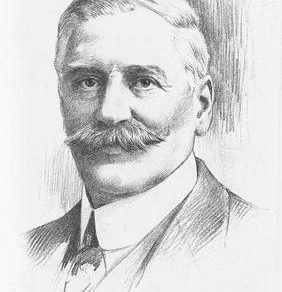Colin Norris (born 12 February 1976) is a former nurse and serial killer from the Milton area of Glasgow, Scotland who was convicted of murdering four elderly patients in a hospital in Leeds, England in 2002. He was sentenced in 2008 to serve a minimum of 30 years in prison. Doubts have since been raised about his conviction by, among others, retired Professor Vincent Marks, an expert on insulin poisoning.
Norris originally worked as a travel agent after leaving college, but after a few years in this role decided to retrain as a nurse. His academic record was average, but he became well-known for being quick to anger and for aggressive confrontations with tutors and, later, employers. After qualifying, he began working as a nurse in Leeds, but quickly fell out with authority figures and experienced staff. Norris admitted that he was disgusted by elderly patients, later saying he “couldn’t get used to the smells”, and said he initially found it difficult to wash elderly female patients who couldn’t bathe themselves.
Crimes.
At the time of the crimes, Norris worked at Leeds General Infirmary and St James’s University Hospital in Leeds. Suspicions were raised when Norris predicted the death of one patient, Ethel Hall, saying to a fellow nurse hours before: “I predict 5:15 am as being the time Ethel Hall will become unwell”. Hall’s condition then worsened badly that morning around 5 am and she died some weeks later. After Hall had become unwell nurses including Norris came to tend to her, at which point Norris tapped his watch and said to the nurse he had predicted Hall’s illness to earlier “I told you”. He had also complained earlier, before she became unwell, that he would have to fill out the paperwork for her death. Norris also stated at the time: “it is always in the morning when things go wrong” and “someone always dies when I do nights”. When questioned by police about this and three other patients who had died while he was on duty, he said “he seemed to have been unlucky over the last 12 months”. The four patients were 79, 80, 86 and 88 years old. The police investigated 72 cases in total.
Police evidence
Chief Superintendent Chris Gregg said that Norris’s accurate prediction of Hall’s death showed that it wasn’t a spontaneous case and demonstrated that it was a premeditated murder, revealing that he had been planning for hours before to kill Hall. During interviews with Norris, police observed he was “cocky” and “showing off”. Criminal psychologists stated that, despite Norris’s prediction, it was unlikely that he wanted to get caught, rather that he merely wanted to demonstrate a sense of superior knowledge. Police noted that Norris showed no empathy in interviews for the women who had died or for their families.
Investigations into the deaths of 72 people who had died on the ward while Norris was working showed that four elderly women had been killed by lethal injections of insulin, and that another had managed to survive a massive injected overdose. None of these women were diabetic. A blood sample was taken from Ethel Hall posthumously after a doctor raised concerns and ordered blood tests, and her blood was found to contain an inexplicably massive amount of insulin – 1000 units in just one sample – and this became the main hard evidence in the police case. The amount of insulin in Hall’s blood was about 12 times the normal level. Hall had only been in hospital to recover from a hip operation at the time. The only nurse that had cared for all five of the patients and had been there in the hours before they came catastrophically ill was Norris. It was discovered after Hall’s death that insulin had also been taken from the storage fridge, and Norris later admitted that he was the last person to have accessed this fridge before Hall had been injected with insulin. The police were also dismissive of Norris’s denials, believing that the suggestion that someone had come on to the ward during the nightshift and gone onto a bay to inject a lady before sneaking away without anybody realising was highly implausible. Investigators stated that Norris did not seem to be explicitly denying the murders, but insisting that they could not be proved.
Police also discovered that Norris had mistreated other elderly patients in the past. In one instance, an elderly man had requested Norris to empty his catheter bag, only for Norris to flatly refuse and insist he did it in the bathroom himself, before going off duty. The elderly man then collapsed after trying to reach the bathroom himself. Other patients stated that Norris had treated them in an offhand and callous manner, and that Norris had an apparent dislike of old people.
Trial.
The trial, at Newcastle Crown Court, took 19 weeks and the jury deliberated for four days. Norris was convicted, by a majority verdict, on 3 March 2008, of the murder of four women, and the attempted murder of a fifth aged 90. He was sentenced to life imprisonment, and ordered to serve a minimum term of 30 years in prison the following day. Judge Mr Justice Griffith rejected any possibility that Norris was practising euthanasia because none of the victims was terminally ill. He told Norris when sentencing:
“You are, I have absolutely no doubt, a thoroughly evil and dangerous man. You are an arrogant and manipulative man with a real dislike of elderly patients. The most telling evidence was that observation of one of your patients, Bridget Tarpey, who said ‘he did not like us old women’.”
Referred to in the British press as the “Angel of Death”, Norris was convicted of killing his victims by injecting them with high levels of insulin.
After the verdict was announced, Leeds Teaching Hospitals NHS Trust apologised to the victims’ families for Norris’s “disturbing” crimes, subsequently describing him as an “extremely dangerous criminal”.
Jessie McTavish, a nurse convicted and then cleared in 1974 for the murder of an 80-year-old patient with insulin, has been identified as a possible inspiration for Norris.[citation needed] He once attended a lecture on her case while studying at university.
Concerns over the conviction
On 4 October 2011 new concerns were raised about the safety of Norris’ conviction. Retired Professor Vincent Marks – a leading expert on insulin poisoning – said the jury at Norris’ trial was led to believe by experts that a cluster of hypoglycaemic episodes, among people who were not diabetic, was sinister. The professor said international medical studies carried out in the years since the 35-year-old Glaswegian was convicted told a different story. “Looking at all the evidence, all I can say is I think Colin Norris’ conviction is unsafe,” he said.
Prof Marks says the four patients picked out by the experts after Mrs Hall’s death “were all at very high risk of developing spontaneous hypoglycaemia” because they had risk factors such as malnutrition, infection and multi-organ failure.
Legal observers have noted that, if the medical evidence is discredited, then the case against Norris collapses, there being little motive and no forensic evidence linking him to the crimes.
In 2011 former Rough Justice producer Louise Shorter and journalist Mark Daly produced the documentary A Jury in the Dark, arguing that there were logical, non-criminal explanations for all the deaths. During research for the film, Daly states he discovered an additional death at Leeds General Infirmary which police had initially been investigating as a potential murder carried out by a male nurse, however; the death “went from suspicious to non-suspicious”, when police learned that Norris was not on duty at the time.
In May 2013 the Criminal Cases Review Commission confirmed it was re-examining the case in the light of new medical and scientific evidence contradictory to that submitted to the jury during the original trial.
In January 2015 the foreman of the jury that convicted Norris told the BBC that he now believes him to be innocent; apparently the second member of the jury to do so.
Similar cases
In the aftermath of Norris’ conviction, the British media drew comparisons with Harold Shipman, Britain’s most prolific serial killer who killed more than 250 patients by lethal injections. Detective Chief Superintendent Chris Gregg, who worked on the Shipman case and led the Norris investigation, was convinced that Colin Norris would have gone on to kill considerably more people if he had not been stopped in his tracks.
In 2006 Benjamin Geen, a nurse at a hospital in Banbury, Oxfordshire, was given 17 life sentences for murdering two of his patients and attacking 15 others. He allegedly used a variety of injections which often included insulin, but his case is also controversial.



